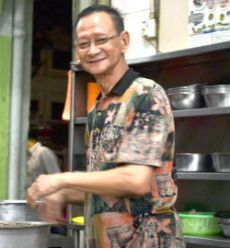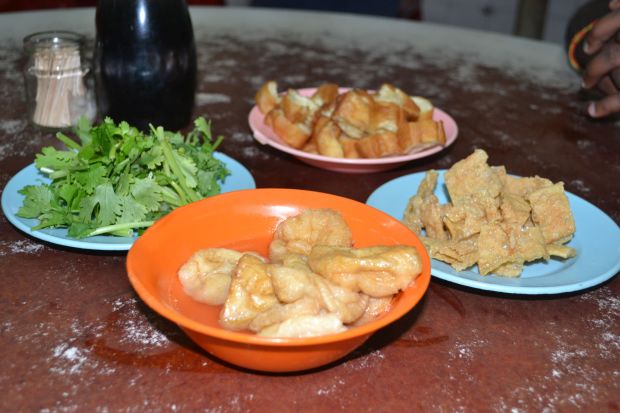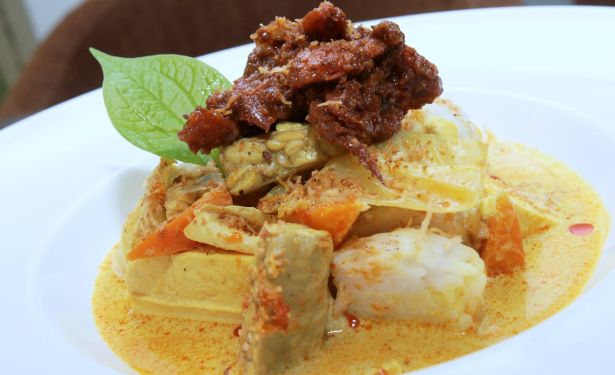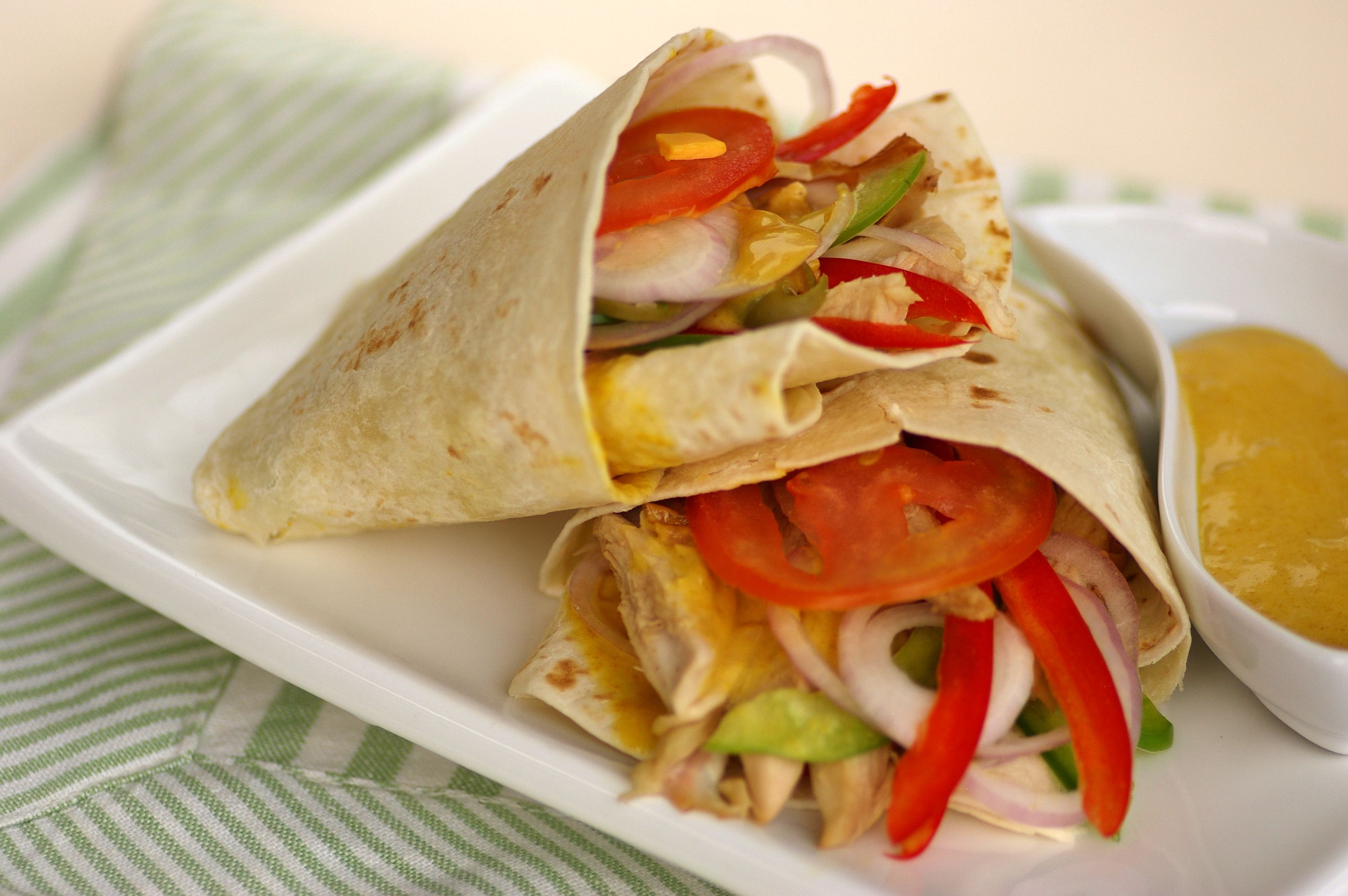SEM KIM RESTAURANT
75 Jalan Ipoh
Kuala Lumpur
Tel: 03-4042 7996
Business hours: Opens Monday to Friday,11.00am-2.00am;
Saturday,11.00am-4.00am (including publicholidays)
For three decades, Sem Kim has dished out its special version of bak kut teh.
STEPPING into Sem Kim Restaurant in Jalan Ipoh may make you feel as if you have travelled back in time by half a century.
Well, the premises are 90 years old and the antique fans that hang overhead as well as the marble-top tables do nothing to jolt you back to reality. But maybe you want to remain in the past.
Especially once you inhale the heady aroma of the “meat bone tea” or the famous bak kut teh infused with the fragrance of onion rice that fills the space. No bak kut teh lover can resist the temptation.
“I’ve been making bak kut teh since 1963,” says proud owner Tan Sem Kim, 67, as he serves customers the steaming hot, blackish broth with juicy chunks of meat and bones swimming in it.
“I came from Jenjarom in Klang and opened business here (Sentul). However, I moved into this shop in 1968.”
Judging by the taste and originality of the dish, one might assume that it is a family recipe, handed down from father to son. However, that’s not the case.
“I learned to prepare this dish myself. It was after the 1980s that business started to boom. Back then, we operated 24 hours a day. I have an elder brother who helps out, so it’s not too bad,” says Tan, who currently employs seven workers.
 The restaurant’s jovial owner Tan Sem Kim keeps his customers happy with his version of ‘meat bone tea’.
The restaurant’s jovial owner Tan Sem Kim keeps his customers happy with his version of ‘meat bone tea’.
Once customers are seated, all the workers get busy. First, three small bowls generously filled with sliced bird’s eye chilli, red chilli and chopped garlic quickly arrive on the table. Then, chopped-up char kuey or dough sticks and fried tofu puffs soaked in clear soup appear together with a small plate of fresh coriander. One can also request for a serving of black shiitake mushrooms.
The workers do their part well, making sure the customers’ pots are refilled constantly.
The art of eating bak kut teh (for me, at least) lies in mixing together the char kuey and fried tofu puffs in the pot (made of clay or stainless steel) of bak kut teh, and adding a sprinkling of coriander before popping the meat into your mouth with a bit of sliced chilli and garlic. The soft, succulent meat absorbs the delicious broth, and the juice squirts out in every heavenly bite.
The difference between the bak kut teh at Sem Kim and the dish offered at other places is its secret broth. Most restaurants serve bak kut teh weakly flavoured with pre-packed herbs. Tan’s version is complex, slightly sweet and savoury at the same time, with a thin layer of natural oil from the meat, leaving his customers asking for more.
According to Tan, he uses special herbs and spices from China and India, which he buys from suppliers in Setapak. With the intensity in flavour, one would think that the meat is marinated before cooking, but Tan reveals that it isn’t.
One of Tan’s longest-serving workers, Ah Ming, 54, who has been around for 30 years and also hails from Tan’s hometown, says his boss never delegates the task of cooking the dish to anybody.
“He personally prepares the broth every day, putting in just the right amount of ingredients and herbs. The whole process takes around two hours.”
The blackish broth is the result of the pork. However, some prefer a clear broth made from just the bones.
“Most Chinese customers prefer their meat with skin,” says Ah Ming. Besides the meat, he adds, customers can try other parts of pig, such as the liver and belly as well as the trotters, which are prepared on order.
For bak kut teh lovers, Sem Kim is certainly worth a visit.




